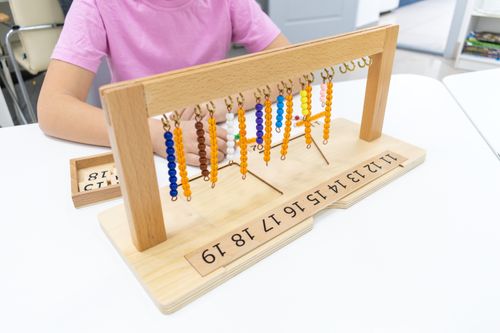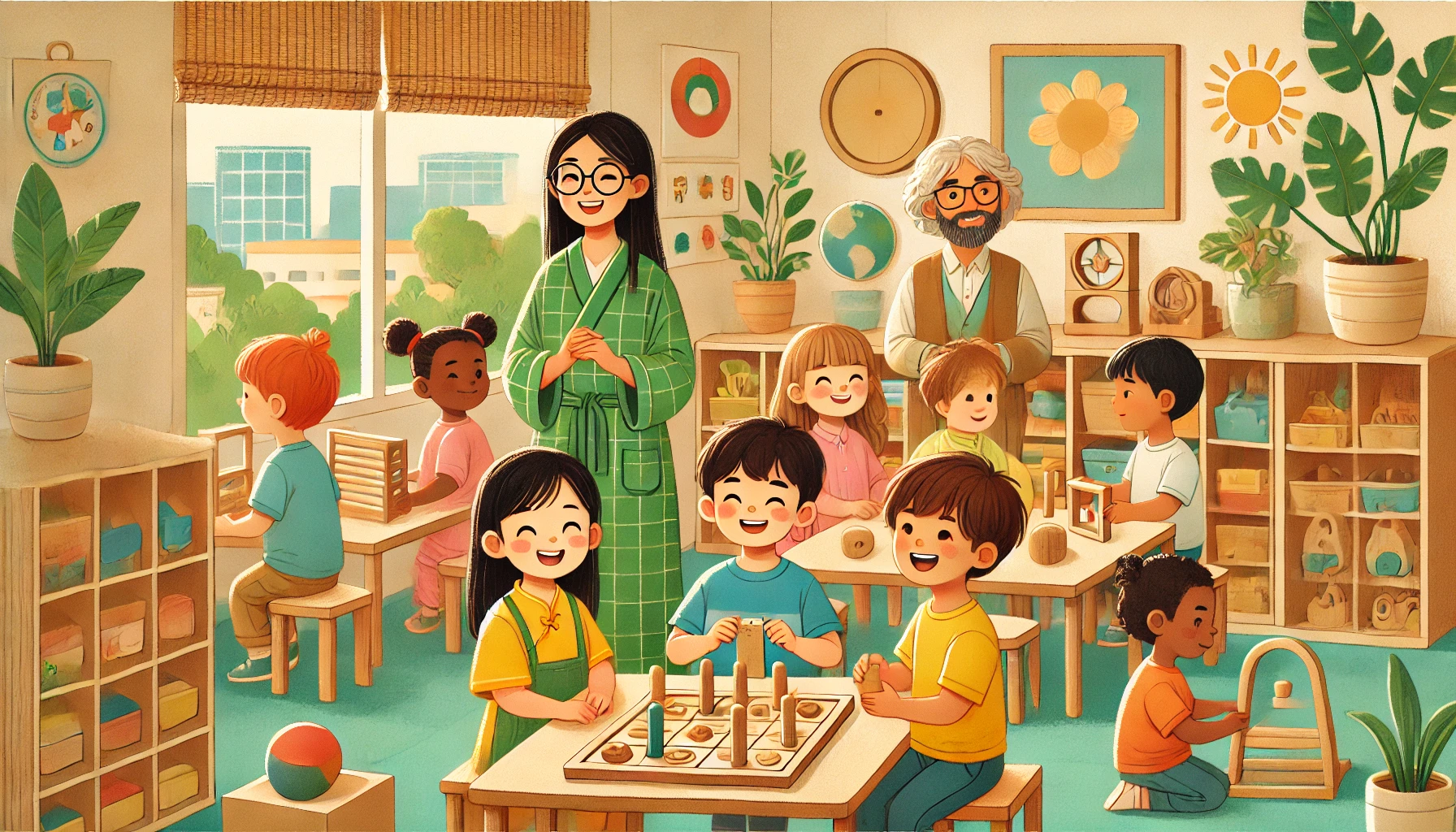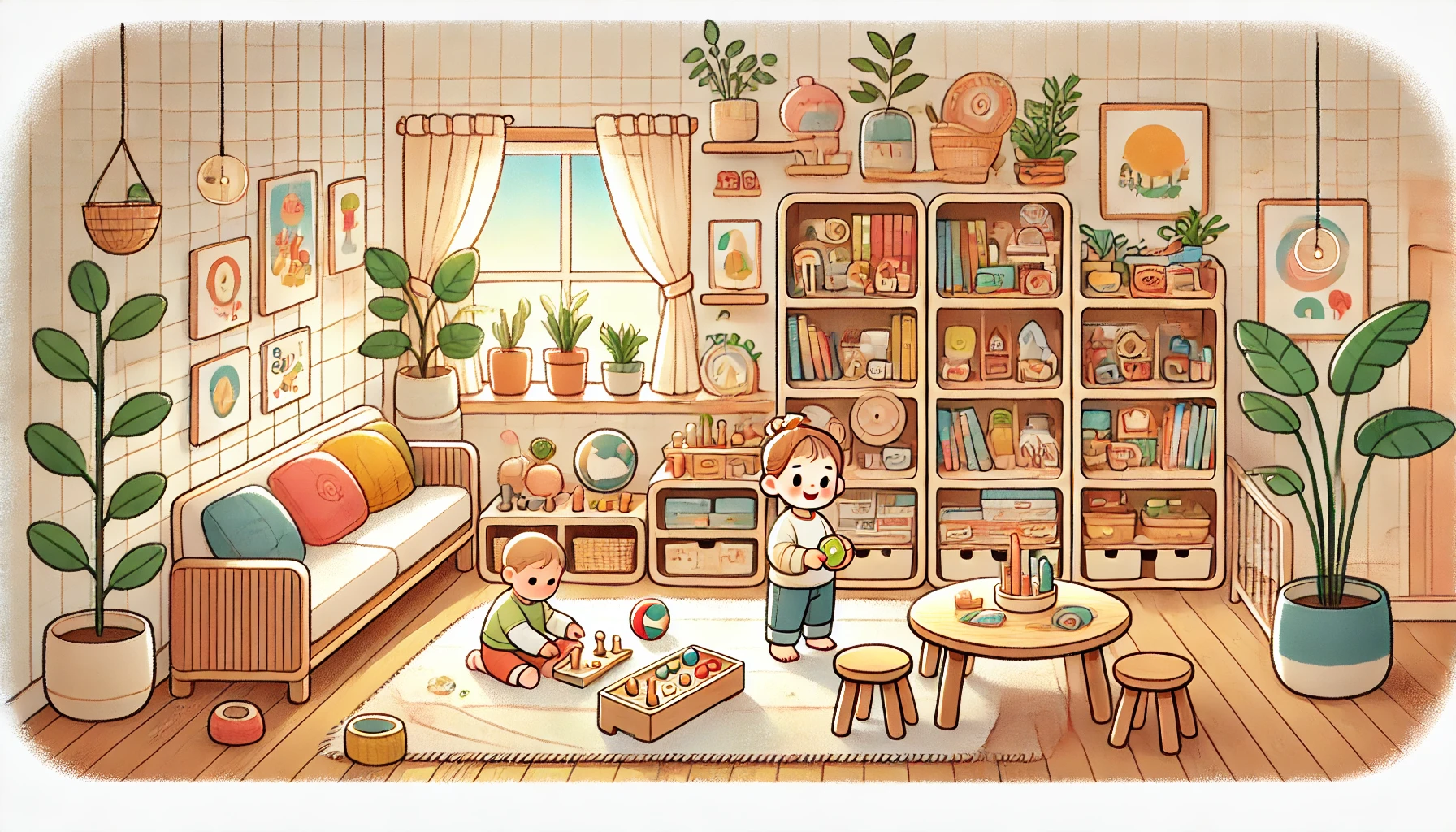
How Montessori Excels at STEM Education: Nurturing Innovators of Tomorrow
STEM (Science, Technology, Engineering, and Mathematics) education is a crucial focus in modern curricula, as it prepares children for a world driven by innovation, critical thinking, and problem-solving. The Montessori approach, known for its hands-on, child-centered methodology, is exceptionally well-suited to fostering a deep understanding of STEM subjects from a young age. At Language Garden Montessori, children naturally engage with STEM concepts in ways that spark curiosity, promote experimentation, and nurture a lifelong love of learning.
In this post, we'll explore how Montessori education lays a strong foundation for STEM learning, helping children develop essential skills that will serve them in the future.
1. Hands-On Learning: Building STEM Concepts Through Exploration
One of the hallmarks of Montessori education is its emphasis on learning by doing. Rather than passively absorbing information, children are encouraged to interact with materials and explore concepts through hands-on activities. This tactile approach is vital to understanding STEM, where abstract ideas can be difficult to grasp without real-world application.
For example, children in a Montessori classroom might use wooden blocks to build towers, learning about balance and stability (engineering) while refining their fine motor skills. Similarly, using measuring cups in the practical life area teaches the basics of volume, measurement, and problem-solving (mathematics). These experiences provide a concrete foundation for abstract STEM concepts, making them more accessible and meaningful to young learners.
2. Sensorial Materials: Laying the Groundwork for Math and Geometry
Montessori sensorial materials are designed to refine a child's senses and help them understand the physical properties of the world around them. In doing so, these materials also introduce fundamental mathematical and geometric concepts. For example, the iconic Montessori materials, the Pink Tower and Brown Stair, help children explore size, dimension, and volume through a hands-on stacking activity. While children enjoy the building challenge, they subconsciously internalize the principles of geometry and mathematical relationships.
Montessori's math materials, such as the golden beads and number rods, introduce children to the decimal system, addition, subtraction, and more. These materials offer children a concrete way to understand what numbers represent, laying the groundwork for more advanced math skills they will develop later.
3. Encouraging Curiosity and Critical Thinking: The Montessori Approach to Science
Science in Montessori classrooms is all about discovery. Rather than teaching science as a series of facts to be memorized, Montessori encourages children to observe, question, and experiment with the world around them. This inquiry-based approach is the essence of the scientific method, promoting curiosity, exploration, and critical thinking.
In a Montessori environment, science is woven into everyday activities. Children might plant seeds in the garden, learn about plants' life cycles, or observe water's properties through pouring exercises. Teachers encourage children to ask questions—Why do plants need sunlight? What happens when water freezes?—and guide them in finding the answers through observation and hands-on experiments.
This method nurtures a natural curiosity and helps children develop the ability to think critically and approach problems with a scientific mindset, essential skills in any STEM field.
4. Practical Life Skills: Developing Problem-Solving and Engineering Mindsets
Montessori's Practical Life activities—tasks like washing dishes, tying shoes, or pouring water—may seem far removed from the high-tech world of STEM. Still, they play a critical role in developing the problem-solving skills and independence essential in engineering and other STEM fields.
Engaging in Practical Life activities teaches children to break down complex tasks into manageable steps, refine their focus and concentration, and develop a "try, fail, and try again" mindset. Engineers and scientists use these skills when designing experiments, troubleshooting problems, or creating new technologies.
For instance, when children learn to sew a button, they develop fine motor skills and the patience to work through a challenging task—qualities also needed when tackling complex engineering problems. These activities build the resilience and persistence that STEM fields demand.
5. Mathematical Materials: From Concrete to Abstract
Montessori-based math materials are unique. They introduce mathematical concepts in a tangible, concrete way. For young learners, understanding abstract concepts like addition, subtraction, and multiplication can be challenging. Still, Montessori math materials allow children to manipulate objects to understand numbers and their relationships better physically.
Take, for example, the golden bead material. Children can hold a single bead, a bar of ten beads, or a square of 100 beads, allowing them to physically see the difference between units, tens, and hundreds. As they progress, they begin to use these materials to perform addition and subtraction, gaining a concrete understanding of how numbers work before transitioning to more abstract math problems.
This step-by-step progression from concrete to abstract is a crucial feature of Montessori education. It sets children up to succeed in more advanced math and science studies later.
6. Group Collaboration: Learning to Solve Problems Together
In Montessori classrooms, children often work together on projects, fostering collaboration, communication, and teamwork—critical skills in STEM careers. Whether building a structure with blocks, experimenting with magnets, or creating a weather station, children learn to share ideas, divide tasks, and solve problems as a team.
This collaborative approach mirrors real-world STEM fields, where engineers, scientists, and mathematicians work together to tackle some of the world's biggest challenges. By learning to communicate effectively and collaborate with peers from a young age, Montessori students are developing the interpersonal skills they will need in future STEM careers.
The Montessori STEM Advantage: Fostering Lifelong Innovators
At Language Garden Montessori, we believe every child is a natural scientist, engineer, and mathematician. Through carefully designed Montessori materials, a focus on hands-on discovery, and an emphasis on critical thinking and problem-solving, we provide children with the tools they need to excel in STEM education.
Montessori education goes beyond traditional STEM instruction by nurturing curiosity, encouraging exploration, and offering real-world learning opportunities. It builds a foundation of skills that will serve children in every aspect of their lives, from the classroom to the world beyond. We're proud to nurture tomorrow's innovators, engineers, and scientists.






























